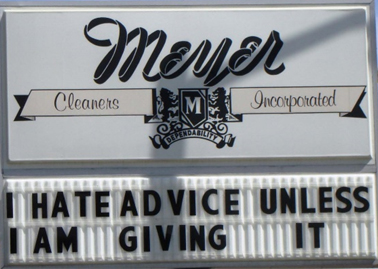Practical Alternatives To Advice – Growing People
Continuing our exploration of the temptation of ADVICE… In Results Coaching: Next Steps, chapter 4, we explore the role of coaching and supervision. The chapter begins with the findings from HR professionals that the most important role of leadership today is to “grow the talent of the employee.” In order to grow talent we grow their confidence to safely think more deeply and reflectively about how they do their work. That means as leaders we must model and teach all staff to deepen confidence in their thinking to consider, explore, risk, make decisions, self-modify and self-assess among others.
 When we offer advice or tell people what they should do, we unknowingly simultaneously tell them they don’t know and can’t know without us. Over time being given advice or told what to do creates in people a sense of helplessness and worthlessness. And that would never be our intent. Thinking about SCARF we are intentional about building status and confidence in those who work with us. Sure there are times when teachers or staff need help thinking through things. Here is where YOU the coach leader comes in.
When we offer advice or tell people what they should do, we unknowingly simultaneously tell them they don’t know and can’t know without us. Over time being given advice or told what to do creates in people a sense of helplessness and worthlessness. And that would never be our intent. Thinking about SCARF we are intentional about building status and confidence in those who work with us. Sure there are times when teachers or staff need help thinking through things. Here is where YOU the coach leader comes in.
- You take the opportunity to model your thinking about a new initiative; letting others hear you considering the pros and cons, options or possibilities out loud.
- You drag out the curriculum guide and read out loud with your teacher the strategies about teaching an abstract concept in math and offer… “Knowing your students the best, which of these might be your next option?”
- You open the campus handbook and with the teacher review the steps for discipline referral and offer… “You are working hard with this student and are right here in the process. How will the next steps support and teach the appropriate responses to this young man?”
- You open the new appraisal document and with the teacher review the rubric about engaging students in learning and offer, “Look at the results you are already seeing with this level. What are you wanting to do to take yourself to the next level?”
- You review with your young new teacher the requirements of an ARD in your handbook and offer, “Ms. Green, you have developed this class and have students eating out of your hand because they see how much you care about them. You now see the ARD process is doing the same thing as you share your best strategies for this student’s success. So what are you thinking you want to offer to his parents?
- You hear yourself saying to a staff member, “Tom, you know our norms and core values here. What are you reflecting on and saying to yourself about the exchange with your colleague?”
Yes, it’s pretty easy to avoid advice when we use the tools and documents around us – our mission statement, our belief statement, our handbooks, our policies, our evaluations, our job descriptions, our agreements, etc. – our Standards and Expectations – they are everywhere and they should be. As we reflect on our supposed temptation to give advice or tell others what to do, how much more motivating and satisfying it is when it comes from a place of best serving others rather than satisfying our own ego to know how and what to do.